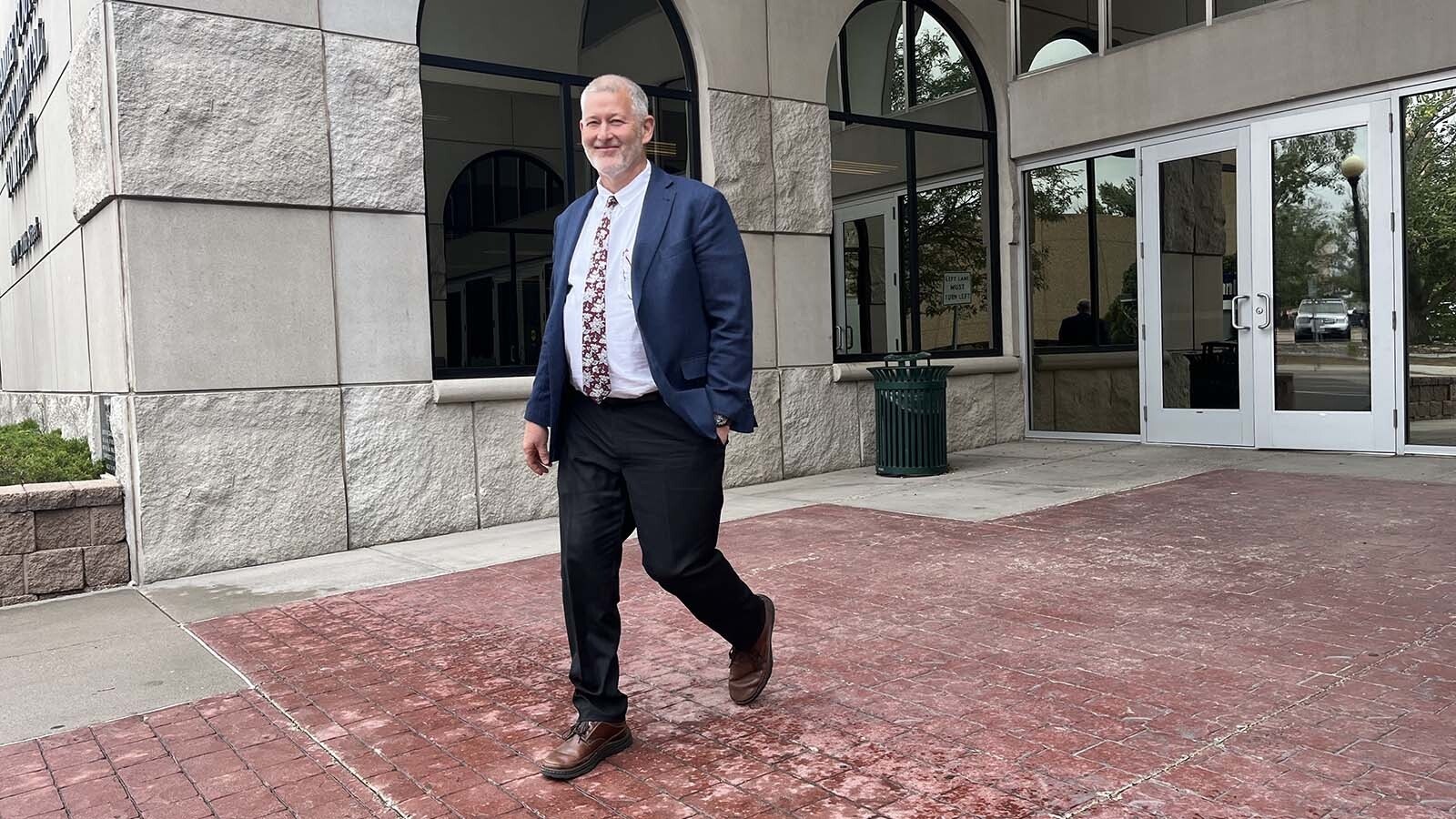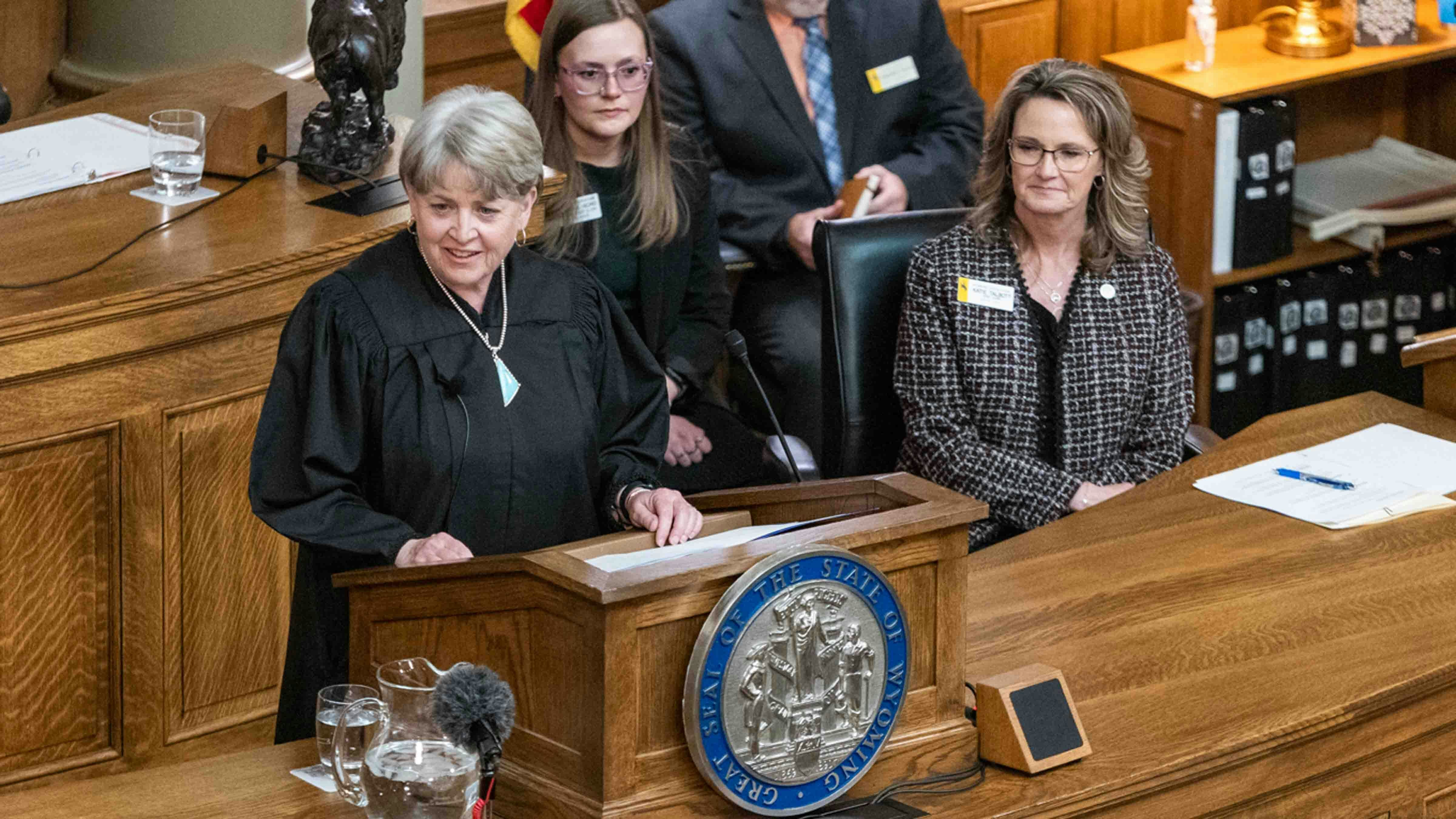Laramie County Judge Steven Sharpe made it clear in a court order Friday how important he considers a public records case involving former Superintendent of Public Instruction Brian Schroeder and one of his leading staffers, saying they failed to act in good faith in complying with state open records law.
“This case is about much more than a simple dispute over records,” Sharpe wrote. “It involves the public’s right to access public information. It involves the public’s right to demand and expect that government agencies will be transparent and act in good faith compliance with the law.”
The lawsuit was filed by Cheyenne attorney George Powers and Laramie attorney Rodger McDaniel this past spring claiming they hadn’t received the information they were entitled to about how Schroeder planned a private political event and whether state money was used for it.
Throughout his order, Sharpe said this case was significant for Wyoming case law and for establishing legal precedent on Wyoming public records access.
“These issues have not been addressed by the courts in the past in the state’s duty in making public records available to the public,” Powers said.
Months of legal filings have proven that not only did Schroeder originally use public money for a private political event, but his staff at the Wyoming Department of Education (WDE) expressed grave concerns about him doing so.
“Most Wyoming citizens would lack the skill, resources and fortitude needed to prosecute this case to a conclusion,” Sharpe wrote. “Nor should the average citizen ever have to go to such Herculean lengths to obtain public records.”
Bad Faith
Sharpe found the state officials acted in bad faith and didn’t perform an adequate search for the public records.
He said that Schroeder’s and his Chief Communications Officer Linda Finnerty’s response to the public records request were not done in good faith and violated the central tenet of the Wyoming Public Records Act (WPRA), which asserts the need for “an open and accountable government.”
He said Schroeder provided misleading statements to the plaintiffs about the source of funding for the event after he already approved expenditures of state money for it.
Sometime after authorizing the use of state money, Schroeder changed his mind and advised his administrative staff he would reimburse that money in response to concerns raised by his staff.
“But the fact Schroeder at some point decided to have private donors reimburse WDE doesn’t alter the fact WDE funds were initially used,” Sharpe wrote. “To the court, it appears that both Schroeder and Finnerty were more concerned with ‘covering the agency’s tracks’ over the prior use of state funds than complying in good faith.”
Sharpe ruled that Schroeder also failed to act in good faith when he refused to provide his private phone for the records search.
During a September court hearing, Schroeder said he relied on the advice of his legal counsel in initially refusing to provide his cellphone. He went on to reveal that although the state’s attorneys advised him he had to provide private texts and emails related to the planning of the event, his friend and private attorney Drake Hill told him he did not have to.
Hill is the husband of embattled former Superintendent of Public Instruction Cindy Hill.
Sharpe ruled that Hill’s advice did not qualify as official legal counsel and that it’s unreasonable for an agency head to “shop around” until he hears the advice he “hoped to hear.”
“The court finds it inherently unreasonable for the head of a state agency to disregard the clear advice of the Wyoming Attorney General and a Senior Assistant Attorney General — who are subject matter experts and who routinely provide agency heads with advice and direction concerning the WPRA,” Sharpe wrote.
It was only after the lawsuit was filed and the Attorney General’s Office became actively involved in the dispute did Schroeder end up turning over the public records.
“The court finds the initial searches conducted at the direction of Ms. Finnerty were not reasonable and were not adequate to recover responsive documents,” Sharpe wrote. “The evidence establishes the initial searches were unreasonably narrow and that Finnerty and WDE did not attempt to locate financial documents responsive to plaintiffs’ request, even though Finnerty knew or certainly should have known such records existed.”
Misleading
Finnerty had emailed a reporter prior to the records request that Schroeder had used state money to pay for his Stop The Sexualization Of Our Children political event in 2022. She made no effort to provide the information in the records request to the plaintiffs.
Finnerty already acknowledged during an earlier court hearing that she erred in performing the search, but had claimed that she didn’t know until months after the request was filed that state money had been used for the event.
Sharpe said the plaintiffs were entitled to the records they requested. The state has conceded this to be true and has provided all but a small number of emails exempt under attorney-client privilege.
In October, more than 1,500 public record text messages and emails were recently released revealing what was going on behind the planning of the event and how Wyoming Department of Education staff felt about it. Sharpe said these texts further showed Finnerty didn’t act in good faith and that her earlier statements were uncredible.
Sharpe said he believes the production of documents related to the case is now sufficient and that the state has satisfied its responsibilities. But he also said Finnerty and Schroeder’s effort in not responding to the records request may be a basis for assessing penalties and damages.
Powers told Cowboy State Daily they will pursue nominal damages in the near future and may also pursue a penalty, which can be assessed up to $750 for violation of the WPRA.
He also said they will also aim to prove that the defendants knowingly and intentionally violated the WPRA.
Sharpe said the Wyoming Supreme Court may want to analyze the case because he finds it likely it will be appealed.
Leo Wolfson can be reached at leo@cowboystatedaily.com.





